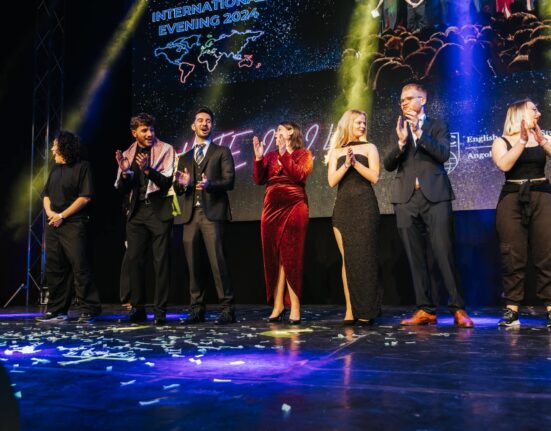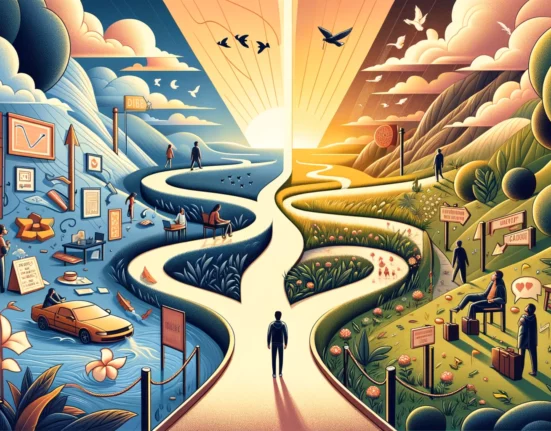The chicken, no, the egg, no, the chicken, no, no, no, no, noooo, the egg!!!! The age-old question of which came first – the chicken or the egg – has been the topic of countless discussions, both seriously and sarcastically. Despite the numerous theories and arguments put forth, there seems to be no universally agreed-upon answer. This dilemma, familiar to most of us, can leave one’s head spinning. But what about a similarly perplexing question: did language come before humans, or did humans come before language? This linguistic riddle, while less well-known, is just as fascinating and controversial.
Questions like these are enough to make your head spin right off your neck. And for anybody who understands linguistics and its complexities, this argument can be a reason to be kept awake at night by such quandaries. If we ask whether man or language came first, most people might answer ‘man’. The answer is evident since for human beings to survive, they need to communicate, and for that, they need language. To begin with, the question arises: aren’t there other creatures in the world with advanced brains communicating with or interacting with one another? The answer is yes. Then why do we define language as the only set of manufactured sounds? The answer is that we do not understand their language because we do not understand their sounds. But here we go again to make it a little spicy and create another controversy, like the egg-chicken riddle.
‘Language has developed from fundamental human needs; it is not a well-planned construct, and humans created it.’ ‘Because there would be less disorder and deregulation in the language if it were a divine creation,’ argued renowned historical linguist Johann Gottfried Herder. So, until now, we can infer that man came first.
There are, however, typical variances in the statement about language not being a divine creation. Because there were dinosaurs before humans, and we are still trying to figure out what was even before them.While it’s widely accepted that humans created language to meet their fundamental needs, some argue that it was divinely inspired. However, this view raises questions about the communication methods of creatures that existed before humans, such as dinosaurs. How did these creatures communicate, and did they have their own languages? These questions highlight the complexity of language and the challenges of defining it universally.
Interestingly, to date, the meaning or definition of language has been limited to the production of sounds, but the concept of language is broad. So, before concluding the answer to the question of who came first, we must give a universal definition of language. Every living thing on earth has a language, and every creature, even nature, has a language. Because without language, people, animals, and other natural creatures would be unable to communicate with one another. We constantly try to understand the languages of many unknown beings in this world. So, before defining language, one must believe how extensive, universal, and dynamic language is.
In recent times, scientists have observed sound waves from space that are generated by space objects. So, based on the sound production and communication matrix, can we call it a ’language’? Maybe. Let us see how!
Those sound waves communicate crucial details and give us more reasons to know about space. Do we understand what these waves say to us? Yes, we do (scientifically). Therefore, it can be called a language. On the other hand, people who are born mute can also communicate with sign language, which does not even produce sounds. So, every matrix has an opposition or contradiction here. So, is there any specific matrix to define language universally?
Therefore, giving a universal definition of language is challenging because language is not absolute but relative. It is connected to myriad significant aspects of our existence in the universe. This dilemma leads us to the relativity of language and compares all aspects of its origin, evolution, and dynamism.
While the question of whether man or language came first may never have a definitive answer, a closer examination of the complexities of language reveals the power and beauty of this uniquely human tool. ‘It’s also important to understand what we learned throughout our lives about language might be wrong, how we can make them less wrong, and why it is crucial to connect the dots backward to move forward. But, by delving into the depths and complexity of this debate, we can gain a deeper grasp of the power and beauty of language and the myriad ways in which it shapes our world and our understanding of ourselves.’
Most importantly, this debate leads us to the following questions: ‘What implications does our evolving understanding of language have for our relationship with the natural world?’ or ‘How might our understanding of language change in the coming years, and what impact might this have on society?’
Photo: literaryocean.com/




